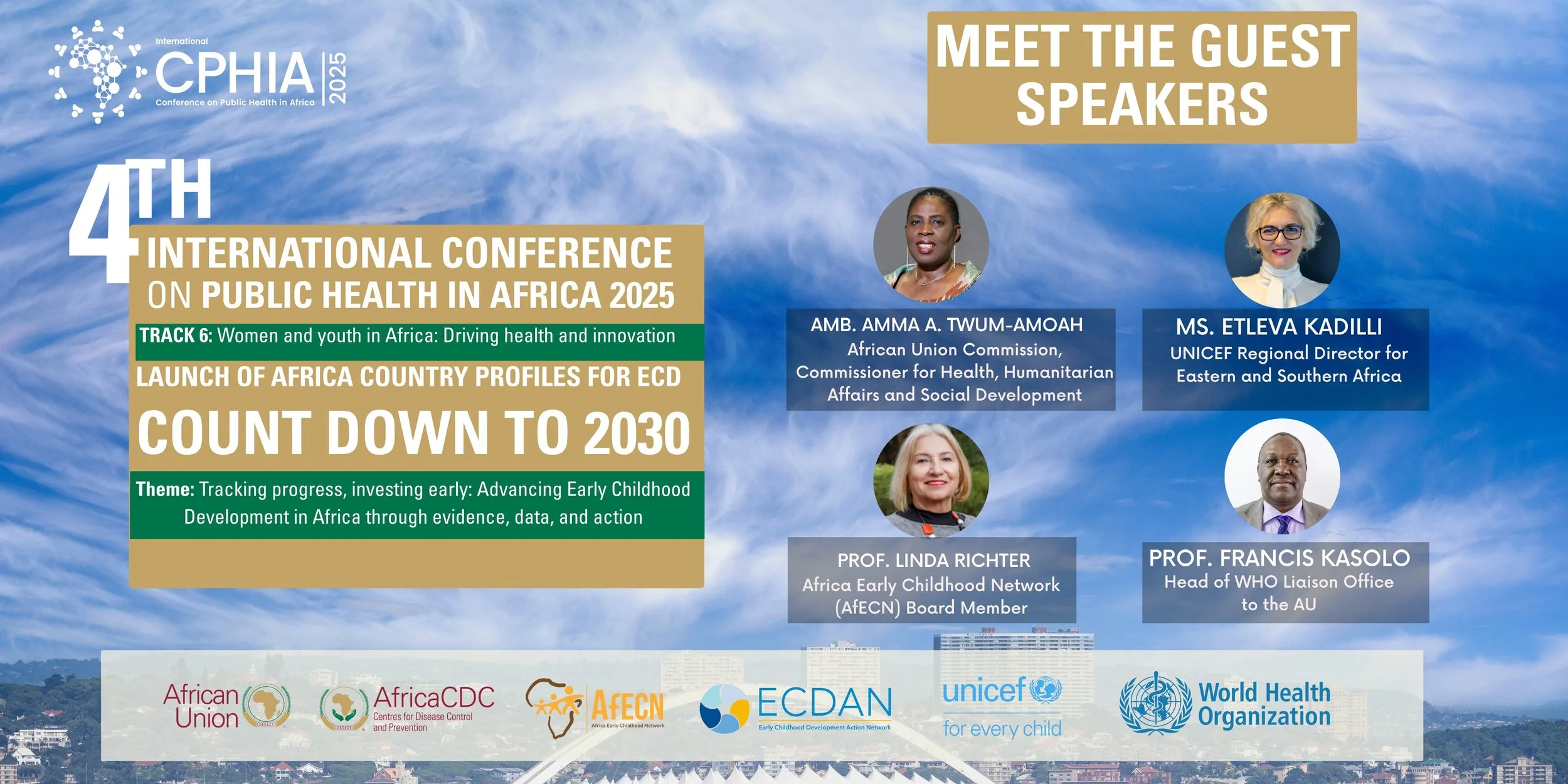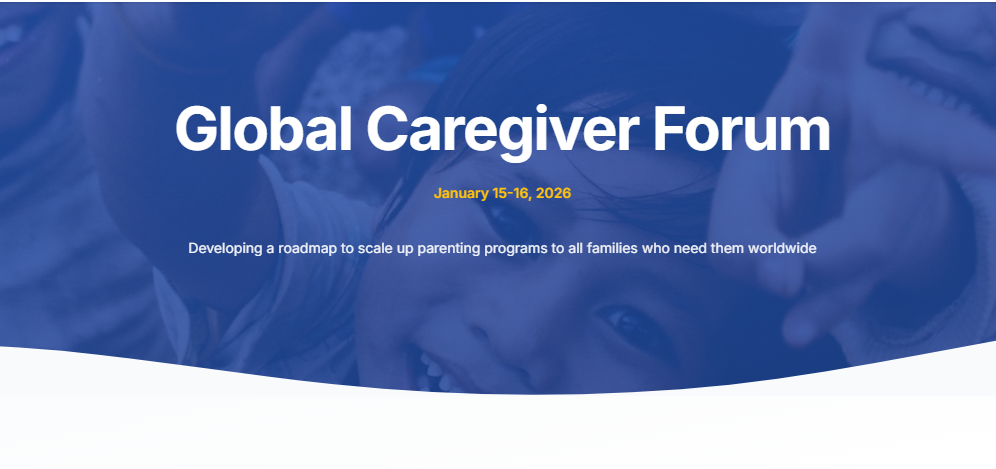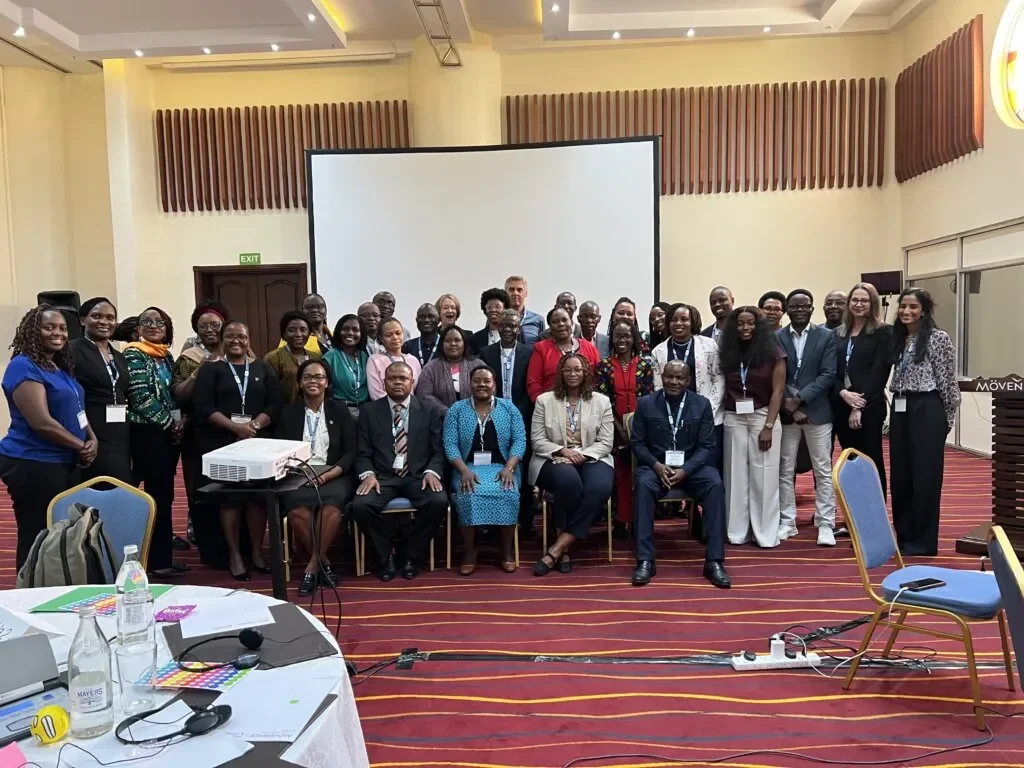Early Childhood Development and Climate Change in Africa: A Call to Action
The Early Childhood Development (ECD) and Climate Change Community of Practice is a subcommittee of the Access to Quality Services Working Group under the African Union Early Childhood Education and Development (ECED) Cluster. In response to the growing number of climate-related disasters affecting families with young children across the continent, the Community of Practice has launched a Climate Change Blog Series. This three-part series aims to share knowledge, amplify diverse voices, and highlight real-world solutions from Africa. As Climate Change intensifies, its most severe impacts are falling on those least responsible and least prepared—young children. The blogs not only shed light on the critical, yet often overlooked, link between Early Childhood Development and Climate Change governance in Africa but also showcase promising responses and initiatives from various regions.
These three blogs feature insights from leading experts and practitioners working across diverse country contexts. Covering a range of perspectives—from policy to community-level action—they unpack the risks that Climate Change poses to young children, highlight systemic gaps, and propose practical, child-centered solutions. Together, they call on all stakeholders to step up advocacy and action toward a more just and resilient future for Africa’s youngest generation.
What to Expect
Blog 1 | Africa Focus: Setting the Scene – Leaving the Youngest Behind in Early Childhood and Climate Change Governance in Sub-Saharan Africa by Dr. Rongedzayi Fambasayi
This introductory blog explores the siloed nature of ECD and climate policy across sub-Saharan Africa. It highlights the urgency of integrating early childhood priorities into climate action and calls for targeted financing and systemic reform to protect the continent’s youngest citizens.
Blog 2 | The Silent Crisis: How Climate Change is Threatening Early Childhood Development in Ethiopia by Nebyat Ayele Assefa
An in-depth look at how climate shocks are undermining Early Childhood services in Ethiopia—and how local actors are stepping up to protect children’s development.
Blog 3| Mitigating the Effects of Extreme Heat on ECDE Centers in Crisis-Affected Northeast Nigeria by Katelin Wilton, Daniel Rotgakka, and Fatima Abdulahi
This blog showcases innovations to address extreme heat in early childhood centres in fragile contexts—centering the voices of local educators and families.
Acknowledgment
This blog series has been made possible through the generous support of the Bainum Family Foundation. We gratefully acknowledge their contribution to enabling this important work. The series also contributes to the knowledge-sharing efforts of the Access to Quality Services Working Group under the African Union ECED Cluster, with a focus on enhancing awareness of the intersection between ECD and Climate Change.
Why This Series Matters
If Africa is to build a truly resilient and inclusive future, it must begin by protecting those most vulnerable to climate shocks—young children in their earliest, most formative years. Through bold policy shifts, targeted financing, and grassroots innovations, we can reimagine climate governance that nurtures not just the environment, but the human potential within it.
Stay tuned as we spotlight best practices, challenges, and Calls to Action for child-centered climate solutions.
Please note: The content presented in this series is not owned by AfECN. It reflects the perspectives and insights of the original authors and contributors.
Read our first blog now: Link


















































































